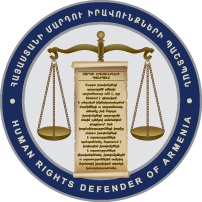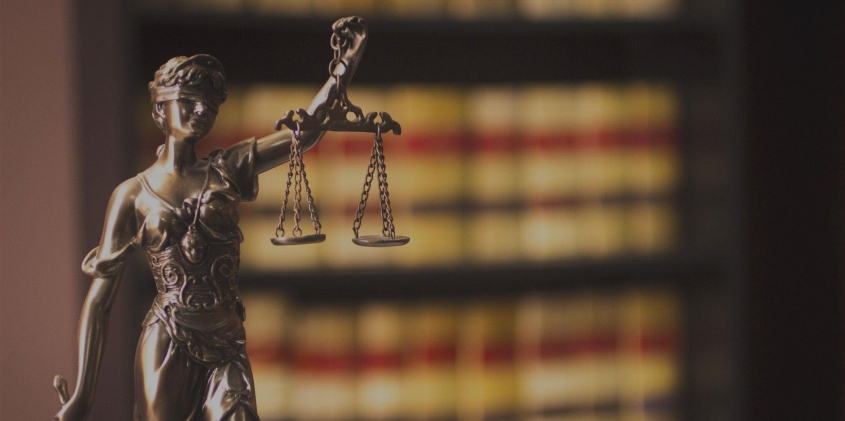The Human Rights Defender’s Office did legal analysis of a number of guarantees for the performance of an advocate’s professional activities in relation to advocate’s entrance to penitentiary institutions or to courts, requests for searches or examination, and protection of the clients’ rights.
The analysis was done in consideration of the following legitimate interests:
1) the advocate’s reputation and the efficiency of his professional work;
2) protection of advocate-client privilege and advocate-client confidentiality;
3) provision of the client’s and the defendant’s right to legal aid and other fair trial guarantees;
4) preventing violations, ensuring the security of an establishment and protecting the rights of others.
An advocate’s professional work is an inseparable part of administration of justice and is subjected to special guarantees. The advocate’s public reputation is an important guarantee for the effective protection of the client’s rights and for the development of human rights protection in the country.
The main conclusions and proposals are:
- each state representative, including penitentiary officials or judicial bailiffs shall be guided by the presumption of the advocate’s integrity and honesty;
- the state shall ensure advocate-client privilege and the protection of advocate-client confidentiality, irrespective of availability of technical supplies;
- any inspection activity shall be carried out in when there are appropriate grounds and a balance between interests of the client and the advocate;
- it follows from the examination of the practice that judicial bailiffs did not take into consideration, from the perspective of proportionality, the reasons provided by advocates for their refusal to be examined. Refusal to undergo examinations, a procedure not limited to a range of specific activities, in any case resulted in grave consequences, namely a restriction to enter the courtroom;
- it is required to clearly differentiate between the concepts “examination” and “search”, clarify the scope of activities falling under the meaning of each of those concepts, taking into consideration the specific legal features in a particular field. The prohibition to examine the advocates must be reflected in the legislation in an appropriate manner;
- there shall be no discrimination in relation to other subjects, including prosecutors;
- it is required to immediately clarify the criteria for determining the prohibited objects and their lists;
- it is required to prepare methodical guidelines for respective inspection activities and organize trainings for officials carrying out the inspection activities;
- It is required to ensure that the guides are available to the public, to disseminate them through mass media and other means available to the public, including posting them in a place visible for the person entering a respective building;
The conclusions and proposals drafted on the basis of the analysis were sent to the Ministry of Justice, Council of Courts’ Chairmen and to the Judicial Department.
The Human Rights Defender’s Office did legal analysis of a number of guarantees for the performance of an advocate’s professional activities in relation to advocate’s entrance to penitentiary institutions or to courts, requests for searches or examination, and protection of the clients’ rights.
The analysis was done in consideration of the following legitimate interests:
1) the advocate’s reputation and the efficiency of his professional work;
2) protection of advocate-client privilege and advocate-client confidentiality;
3) provision of the client’s and the defendant’s right to legal aid and other fair trial guarantees;
4) preventing violations, ensuring the security of an establishment and protecting the rights of others.
An advocate’s professional work is an inseparable part of administration of justice and is subjected to special guarantees. The advocate’s public reputation is an important guarantee for the effective protection of the client’s rights and for the development of human rights protection in the country.
The main conclusions and proposals are:
- each state representative, including penitentiary officials or judicial bailiffs shall be guided by the presumption of the advocate’s integrity and honesty;
- the state shall ensure advocate-client privilege and the protection of advocate-client confidentiality, irrespective of availability of technical supplies;
- any inspection activity shall be carried out in when there are appropriate grounds and a balance between interests of the client and the advocate;
- it follows from the examination of the practice that judicial bailiffs did not take into consideration, from the perspective of proportionality, the reasons provided by advocates for their refusal to be examined. Refusal to undergo examinations, a procedure not limited to a range of specific activities, in any case resulted in grave consequences, namely a restriction to enter the courtroom;
- it is required to clearly differentiate between the concepts “examination” and “search”, clarify the scope of activities falling under the meaning of each of those concepts, taking into consideration the specific legal features in a particular field. The prohibition to examine the advocates must be reflected in the legislation in an appropriate manner;
- there shall be no discrimination in relation to other subjects, including prosecutors;
- it is required to immediately clarify the criteria for determining the prohibited objects and their lists;
- it is required to prepare methodical guidelines for respective inspection activities and organize trainings for officials carrying out the inspection activities;
- It is required to ensure that the guides are available to the public, to disseminate them through mass media and other means available to the public, including posting them in a place visible for the person entering a respective building;
The conclusions and proposals drafted on the basis of the analysis were sent to the Ministry of Justice, Council of Courts’ Chairmen and to the Judicial Department.
The legal analysis is attached.
RA Human Rights Defender’s Office



